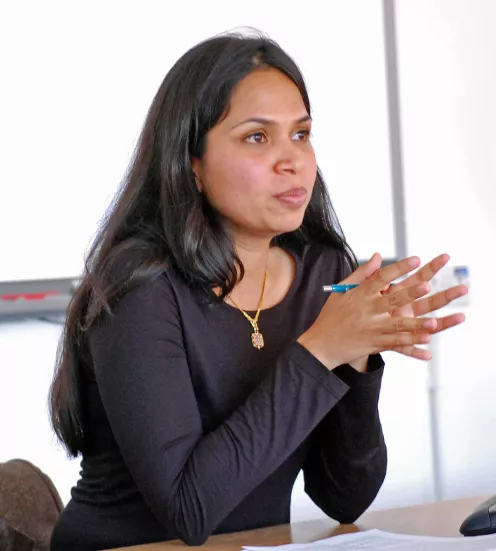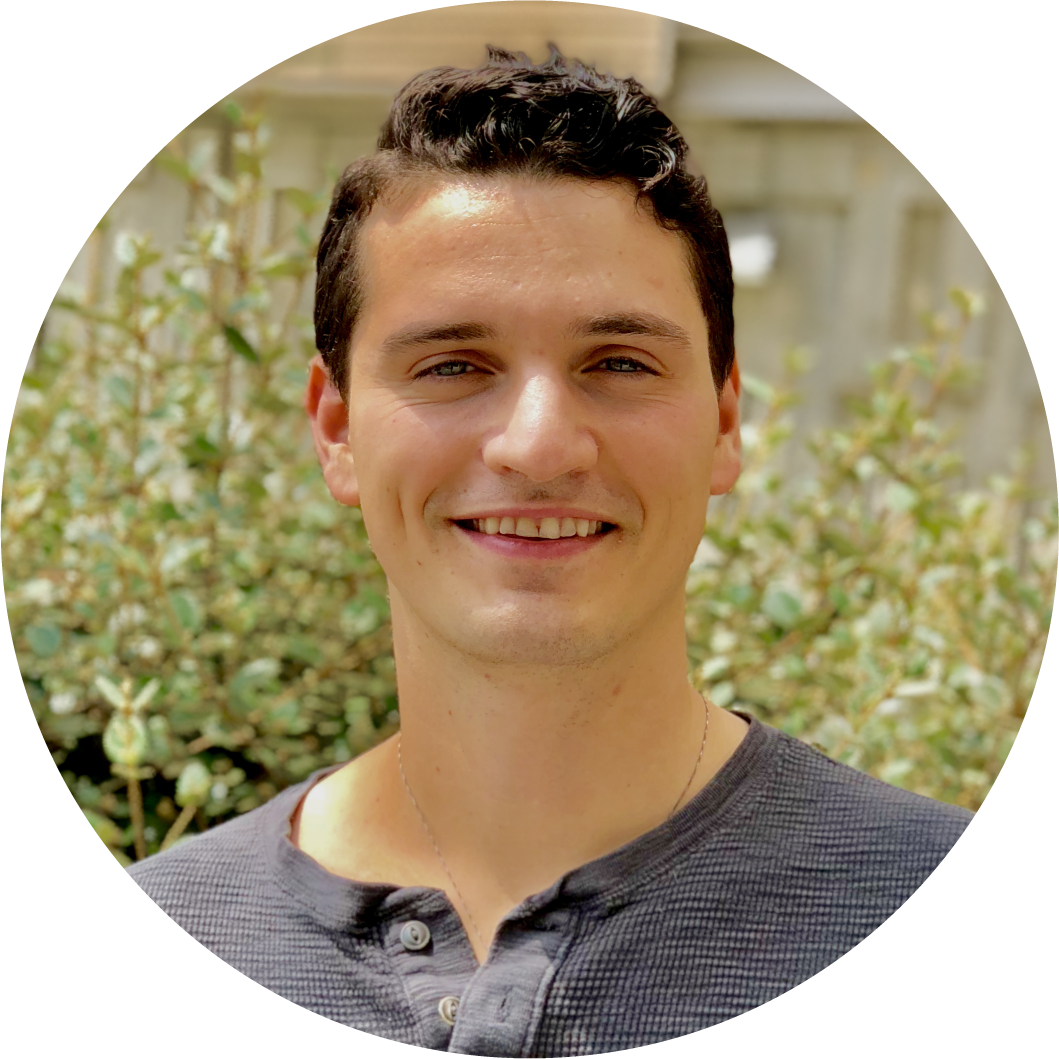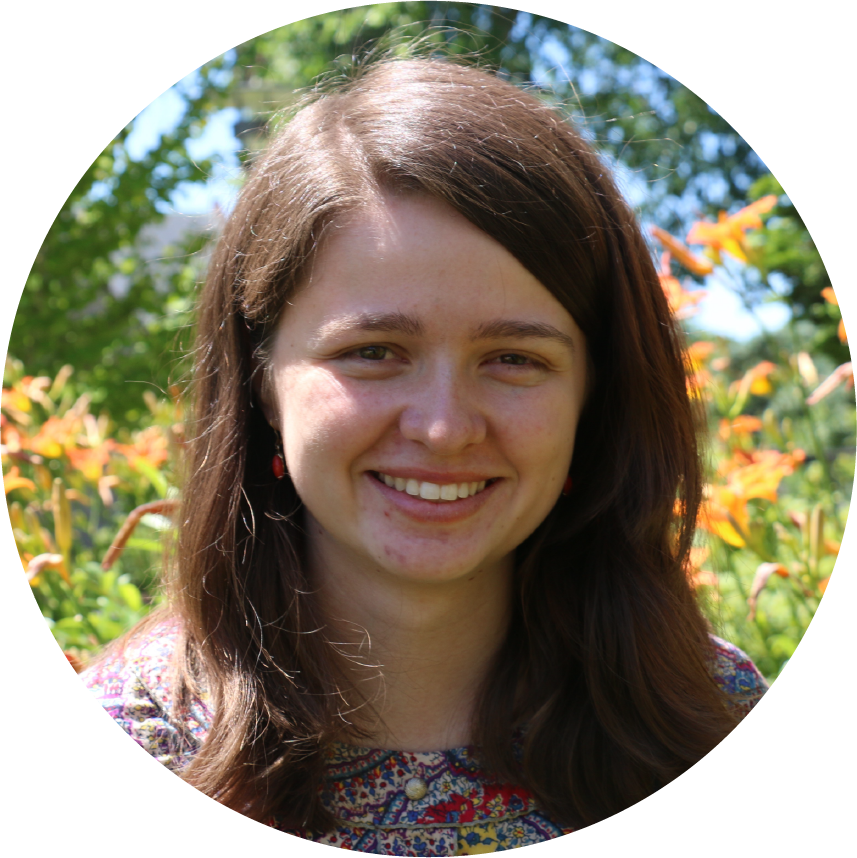
Get to Know Berkman Klein Fellow Padmashree Gehl Sampath
a spotlight on one of our 2018-2019 BKC Fellows


by Daniel Chase and Marianne Strassle
This interview is part of a collaborative effort between the summer 2018 BKC interns and the Communications team to showcase the tremendous work and backgrounds of our 2018 -'19 BKC fellows.
Padmashree Gehl Sampath is an international expert on trade, innovation and development issues. We had originally hoped that all the responses would be tweet length so we could say “Tweeting with Padmashree Gehl Sampath.” But her responses are way too good to shorten!
Read more stories from our Interns and Fellows!
What are you doing at the Berkman Klein Center?
I am researching the impacts of the digital economy and rising digital trade on industrialization, job creation and value generation in developing countries. There are several sub-questions I really want to explore – the rise of platform economy, technological change, and social cohesion. I want to look deeper into issues of trade and intellectual property, monopolies, and disruptive change in the fourth industrial era, employment and redistribution.
Who are you hoping to work with?
I am looking forward to working with everyone given the exciting set of people who work at BKC as faculty, fellows and associates! More specifically, I look forward to work with Professor Okediji, Professor Wu, and Professor Benkler.
What made you interested in becoming a fellow at BKC?
Analyzing the digital economy calls for interdisciplinary work because most of the policy issues are complex and draw from science, technology, law and economics. BKC offers the perfect place for such a medici effect.
Analyzing the digital economy calls for interdisciplinary work because most of the policy issues are complex and draw from science, technology, law and economics. BKC offers the perfect place for such a medici effect.
What inspired you to investigate your area of research?
It took me some time to find my way. I started out as a science student enrolled in a Bachelor’s Degree in Electronics. But growing up in India in the 1980s, I was most affected by social inequality and development issues, so I fought hard to move disciplines; to study something closer to social change.
Although I started out with law, I moved quickly to economics (I missed the Maths and so economics was meant to be). My personal trajectory coincided with the global move to create the World Trade Organization with questions like – should developing countries join the WTO? How can trade ensure development? Is the Dunkel Draft fair? – and the rest is history.
If you couldn’t do your current work, what would you be doing instead?
I would be a chef. I love to cook, to mix ingredients in new ways and to create recipes that are inspired by my personal journey – from India to Germany, Netherlands, UK, Bangladesh, Switzerland and France (with a little flavour of Denmark and the USA thrown in). I am writing my own cookbook which I hope to be able to publish one day! So in another life, I think I would be a real restauranteur with my own food line.
I would be a chef. I love to cook, to mix ingredients in new ways and to create recipes that are inspired by my personal journey – from India to Germany, Netherlands, UK, Bangladesh, Switzerland and France (with a little flavour of Denmark and the USA thrown in).
Can you tell us a little about yourself?
I’d like to think I’m fun-loving, spunky and witty. I like waking up thinking everything is possible. I’m a restless person. I like to be challenged, and I’m known to drive my family and friends nuts with new plans and initiatives on a regular basis. I hate clutter in general but prefer to leave my desk messy and creative.
I’d like to think I’m fun-loving, spunky and witty. I like waking up thinking everything is possible
Tell us about your time at the UN? What were you doing? What did you learn? Did anything surprise you?
I always wanted to work at the United Nations. But having worked now in several UN agencies – the United Nations University, WHO and UNCTAD – the most surprising lesson for me was that there is a long way (and sometimes, none) from research to have an impact. Politics and individual persuasion to influence do not always go hand in hand. You need to work in different ways and be open-minded to make change happen.
What impact do you hope to have on the world?
Although inequality and suffering are both growing immeasurably in all countries worldwide, we are far from finding effective ways to influence it in policy and practice. In my view, if any of us can change the lives of five other people, they would have achieved something remarkable.
In my view, if any of us can change the lives of five other people, they would have achieved something remarkable.
You have published several journal articles, chapters in books and five published books. Any recommendations for good books, articles or movies you have read recently?
I love reading all kinds of books. I just finished reading Gail Honeyman’s Eleanor Oliphant is Completely Fine, which I thought was impressive. It’s a beguiling story; a superb first novel. A more serious book I read recently is Quinn Slobodian’s Globalists: The End of Empire and the Birth of Neoliberalism, which is a great intellectual summary of neoliberal thinking in the international context.
What’s the kindest thing anyone has ever done for you?
The kindest gift I have received is my daughter. When she was a young child, she made up these ‘magic kisses’ that were quite the deal. She would plant them on my face anytime I looked slightly unhappy. It was truly magical.
Your work has taken you all around the world, any favorite place?
Bangalore, my hometown.
I love it particularly in the fall, when all the trees shed their leaves and I walk on the pavement brushing the leaves aside like I used to when I was much younger. Unfortunately, there are not too many streets of that kind left, but my favorite pastime when I am there is to recreate that magic. I like to have a lazy lunch, take a stroll on those streets with my friends and head off into the city to buy books.
As an Adjunct Professor at the University of Aalborg and as an incoming fellow at the BKC, can you give us any research tips you have learned over the years?
While writing in social sciences, don’t ever write without thinking about the policy implications.
Two tips that I can give from my experience as an academic and policy practitioner:
Don’t over-commit, because quantity always compromises quality.
While writing in social sciences, don’t ever write without thinking about the policy implications. Even if you don’t explicitly write it down, others will draw inferences so think of what you are suggesting and what it means!
What are you most looking forward to living in Boston/New England area?
I look forward to the simple things - exploring the Harvard Public Library and the various bookstores, interacting with people at seminars and being able to conduct research. I’m also looking forward to learning more about Boston/New England by hiking, cycling and eating in new places.
Read more about our Open 2019 - '20 Fellows Call for applications!
Interviewers
Daniel Chase
Daniel is a second-year student at Berkeley Law. He is interested in the intersection of law and technology. Daniel worked as an intern with the Cyberlaw Clinic during the summer of 2018.
Marianne Strassle
Marianne is a third-year law student at Boston University. She is interested in the intersection of law and international development. During the summer of 2018, Marianne worked with the telecom and AI research teams.